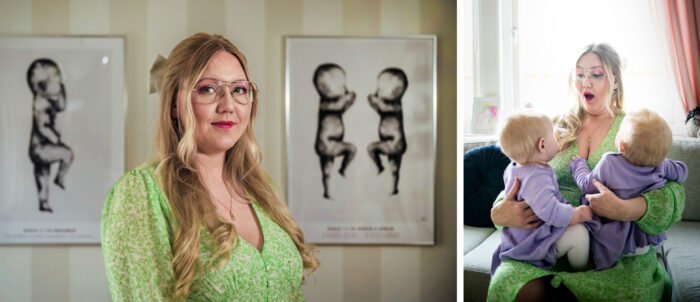Malaka Grant, author, story-teller and founder of the blog Adventures from the Bedrooms of African Women, about reshaping the idea that birth control is a women’s responsibility.
»What are your thoughts/feelings about birth control; especially dealing with the misogynistic expectation that birth control is women’s burden?«
In all my years of talking about sex and pleasure, this was the first time I’d ever been posed this question. Can I be honest? The query rendered me confounded. In the immediate moments that followed, I had to unpack, interrogate, and reassess everything I believed about birth control: from access to end use. And if I can be honest further still, I felt ashamed. It had never occurred to me that my approach and philosophy on birth control use was misogynist, or that I was an active agent in perpetuating those attitudes.
To answer the question with integrity, I had to revisit my sexual past as a single woman and compare it with my current context in a monogamous marriage. I began having sex in my early teens, and at the time, gaining access to oral contraception in Accra, the capital of Ghana, presented several barriers. You needed a doctor’s prescription, and that meant parental consent (and *gasp* awareness of your intent to have sex!).
In our conservative climate, this was considered shameful for all involved. It signaled that such a girl was “bad” and that your parents had done a “bad job” of raising you. Boys faced similar hurdles in accessing methods of birth control, such as condoms, and would often rely on older friends or relatives to make those purchases for them.

»Boys never had to quit school or have their whole lives upended because of a pregnancy they had caused.«
Like many girls and women my age, we did not always have access to contraception when the mood struck, and that led to risky sexual behavior – the worst consequence being an unintended pregnancy and a bleak future for the girl in question. That I did not end up a young mother was purely luck. However, this was never something that the boys I dated ever expressed concern about. Boys never had to quit school or have their whole lives upended because of a pregnancy they had caused.
When I emigrated to the US for university, I found attitudes on my campus worlds apart from the ones in which I was raised. Our dorm directors spoke to us openly about sex and about “our responsibility as young women to protect ourselves” encouraging us to take control »because no man was going to do it for us.« I internalized messaging that said that men were irresponsible, absent minded, woefully incapable of thinking beyond their immediate sexual gratification, which is in hindsight, anti-feminist thought. Man and sperm producing partners can and should bear equal responsibility in protecting either party during a penetrative sexual encounter.
»Man and sperm producing partners can and should bear equal responsibility in protecting either party during a penetrative sexual encounter.«
After marriage, these beliefs manifested in me getting on the pill in order that my husband could enjoy an optimal sexual experience and so that I would not have to worry about being impregnated. Experiencing the side effects of the pill – weight gain and acne – were duties I felt I had to bear as the person with the ultimate responsibility in the relationship. However, after the birth of our fourth child, my husband had an elective vasectomy to spare me the adverse effects of a tubal ligation or continuing the pill. It is estimated that 5% of married men opt for a vasectomy, compared to 27% of women who get their tubes tied, further evidence of the unfair expectations placed on women.
Until we begin to reshape our attitudes around birth control, even the most feminist among us will never experience true equality in the bedroom. We have to abolish the patriarchy from sex.
Malaka Grant is an author, story-teller and founder of the blog Adventures from the Bedrooms of African Women. Her written work has been featured on The parenting blog, This Is Africa, and The Verso Book of Feminism: Revolutionary words from Four Millennia of Rebellion.
Read more: Interview with Malaka Grant






